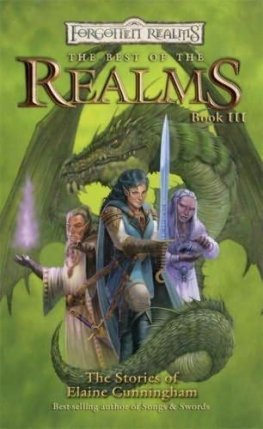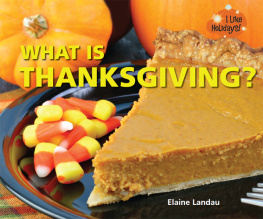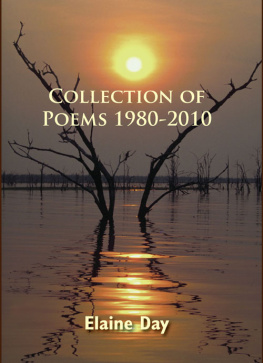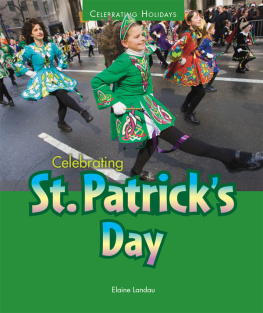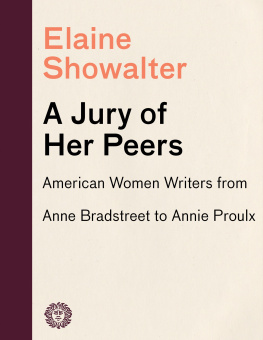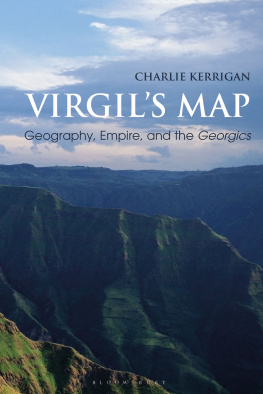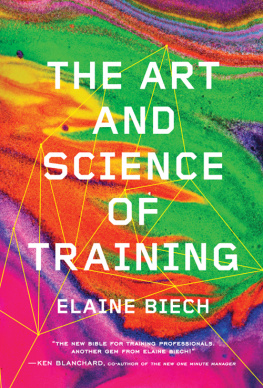Fantham Elaine - Georgics
Here you can read online Fantham Elaine - Georgics full text of the book (entire story) in english for free. Download pdf and epub, get meaning, cover and reviews about this ebook. City: UK;New York;Oxford, year: 2009;2006, publisher: Oxford University Press, genre: Romance novel. Description of the work, (preface) as well as reviews are available. Best literature library LitArk.com created for fans of good reading and offers a wide selection of genres:
Romance novel
Science fiction
Adventure
Detective
Science
History
Home and family
Prose
Art
Politics
Computer
Non-fiction
Religion
Business
Children
Humor
Choose a favorite category and find really read worthwhile books. Enjoy immersion in the world of imagination, feel the emotions of the characters or learn something new for yourself, make an fascinating discovery.

- Book:Georgics
- Author:
- Publisher:Oxford University Press
- Genre:
- Year:2009;2006
- City:UK;New York;Oxford
- Rating:3 / 5
- Favourites:Add to favourites
- Your mark:
- 60
- 1
- 2
- 3
- 4
- 5
Georgics: summary, description and annotation
We offer to read an annotation, description, summary or preface (depends on what the author of the book "Georgics" wrote himself). If you haven't found the necessary information about the book — write in the comments, we will try to find it.
Georgics — read online for free the complete book (whole text) full work
Below is the text of the book, divided by pages. System saving the place of the last page read, allows you to conveniently read the book "Georgics" online for free, without having to search again every time where you left off. Put a bookmark, and you can go to the page where you finished reading at any time.
Font size:
Interval:
Bookmark:
OXFORD WORLDS CLASSICS
PUBLIUS VERGILIUS MARO (VIRGIL) was born near Mantua in northern Italy in 70 BCE. He was educated at the larger town of Cremona and finally at Milan. He moved to Rome around 52 BCE, but spent most of his time thereafter in the (then) congenial surroundings of the Bay of Naples. He wrote the Eclogues in the period circa 4239 BCE. Around the year 38 he joined the circle of poets in the entourage of Maecenas, the future imperial Minister for the Arts. The composition of the Georgics occupied him from 37 or earlier until 29. He spent the rest of his life working on his epic poem, the Aeneid. He died at Brundisium in 19 BCE after abandoning a visit to Greece and Asia on which he intended to complete and perfect his epic.
PETER FALLON grew up on a farm near Kells in County Meath. He is a graduate of Trinity College, Dublin, where he was Writer Fellow in 1994. He was inaugural Heimbold Professor of Irish Studies at Villanova University in 2000. He founded The Gallery Press in 1970 and has edited and published more than 400 titles. His own books include News of the World: Selected and New Poems (1998). He lives in Loughcrew in County Meath.
ELAINE FANTHAM was educated at Oxford and taught first at the University of Toronto (196886) then Princeton University (19862000). She is author of commentaries on Senecas Trojan Women, Lucan, Civil War, Book 2, and Ovid, Fasti IV, of Roman Literary Culture, and most recently of Ovids Metamorphoses (Oxford Approaches to Literature) and The Roman World of Ciceros De Oratore.
OXFORD WORLDS CLASSICS
For over 100 years Oxford Worlds Classics have brought readers closer to the worlds great literature. Now with over 700 titlesfrom the 4,000-year-old myths of Mesopotamia to the twentieth centurys greatest novelsthe series makes available lesser-known as well as celebrated writing.
The pocket-sized hardbacks of the early years contained introductions by Virginia Woolf, T. S. Eliot, Graham Greene, and other literary figures which enriched the experience of reading. Today the series is recognized for its fine scholarship and reliability in texts that span world literature, drama and poetry, religion, philosophy, and politics. Each edition includes perceptive commentary and essential background information to meet the changing needs of readers.
Refer to the to navigate through the material in this Oxford Worlds Classics ebook. Use the asterisks (*) throughout the text to access the hyperlinked Explanatory Notes.
OXFORD WORLDS CLASSICS

VIRGIL

Translated by
PETER FALLON
With an Introduction and Notes by
ELAINE FANTHAM


Great Clarendon Street, Oxford 0X2 6DP
Oxford University Press is a department of the University of Oxford.
It furthers the Universitys objective of excellence in research, scholarship,
and education by publishing worldwide in
Oxford New York
Auckland Cape Town Dar es Salaam Hong Kong Karachi
Kuala Lumpur Madrid Melbourne Mexico City Nairobi
New Delhi Shanghai Taipei Toronto
With offices in
Argentina Austria Brazil Chile Czech Republic France Greece
Guatemala Hungary Italy Japan Poland Portugal Singapore
South Korea Switzerland Thailand Turkey Ukraine Vietnam
Oxford is a registered trade mark of Oxford University Press
in the UK and in certain other countries
Published in the United States
by Oxford University Press Inc., New York
First published as The Georgics of Virgil by Peter Fallon by The Gallery Press,
Loughcrew, Oldcastle, County Meath, Ireland in September 2004
This revised translation and Translators Note Peter Fallon 2004, 2006
Editorial material Elaine Fantham 2006
The moral rights of the author have been asserted
Database right Oxford University Press (maker)
First published as an Oxford Worlds Classics paperback 2006
All rights reserved. No part of this publication may be reproduced, stored in a retrieval system, or transmitted, in any form or by any means, without the prior permission in writing of Oxford University Press, or as expressly permitted by law, or under terms agreed with the appropriate reprographics rights organization. Enquiries concerning reproduction outside the scope of the above should be sent to the Rights Department, Oxford University Press, at the address above
You must not circulate this book in any other binding or cover
and you must impose the same condition on any acquirer
British Library Cataloguing in Publication Data
Data available
Library of Congress Cataloging in Publication Data
Data available
Typeset in Ehrhardt
by RefineCatch Limited, Bungay, Suffolk
Printed in Great Britain by
Clays Ltd, St Ives plc
ISBN 0192806793 9780192806796
for Adam
cecini pascua rura duces
I sang of farms and fields and men who lead
Virgil, on his deathbed
What tickles the corn to laugh out loud
Thus far I have been singing of working the land
You too, Pales, great goddess of the folds
Which brings me to heavens gift of honey
Virgils Poem of the Land
Publius Vergilius Maro, the poet we know as Virgil, was born and spent his childhood in the fertile countryside of Andes, near the ancient Etruscan city of Mantua, by the waters | of the wide Mincius whose ambling course flows this way and that, | its sides tossing their fringe of wavy rushes. (Georgics 3.1315). We think of Mantua as Italian, but it and most of northern Italy had been inhabited by Gauls (Celtic tribes) until they were brought under Roman control by a series of campaigns ending about a century before Virgils birth, on 15 October, 70 BCE. Geographically continuous with Roman territory, this region, roughly corresponding to Lombardy, was still treated in Virgils youth as outside Italy proper, and governed as the province of Cisalpine Gaul. The elite acquired Roman citizenship through holding local magistracies, and were linked in family or friendship with Roman society, but the peoples of the Po basin would not become Roman citizens until their last governor, Julius Caesar, had the power to impose a law giving them citizenship when Virgil himself was in his twenty-first year, in 49 BCE.
Despite various reports by his biographers Virgils father must have been a relatively prosperous farmeror even landownerand he was culturally ambitious, like the parents of Virgils poetic predecessor Valerius Catullus from Verona, and of the contemporary historian Titus Livius (Livy) from Padua. He sent his son away to be educated, first for elementary instruction in language and literature at Cremona, then to Milan, and finally to prepare for public life by studying rhetoric at Rome itself.father must have realized that his son was unsuited for the standard career of a lawyer or army officer. In fact both father and son may have taken active steps to avoid being involved in the civil war which broke out when Julius Caesar defied the Senates attempts to control him and re-entered Italy with an army at Ariminum (near Mantua), in Virgils twentieth year. The civil war divided the loyalties of many families, and most young Romans were caught up in the fighting between Caesars forces and the forces of the senate commanded by Pompey, in northern Greece and later in North Africa and Spain.
Next pageFont size:
Interval:
Bookmark:
Similar books «Georgics»
Look at similar books to Georgics. We have selected literature similar in name and meaning in the hope of providing readers with more options to find new, interesting, not yet read works.
Discussion, reviews of the book Georgics and just readers' own opinions. Leave your comments, write what you think about the work, its meaning or the main characters. Specify what exactly you liked and what you didn't like, and why you think so.

